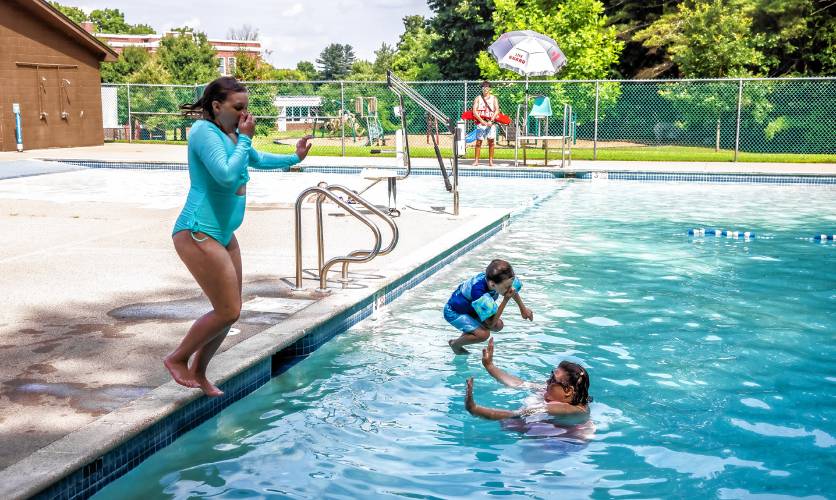July swelter continues: Concord could come close to record of 98 degrees
|
Published: 07-15-2024 5:10 PM
Modified: 07-15-2024 6:39 PM |
Concord will bake under the second major heat wave of the summer through at least Wednesday, but we’re not alone: Most of the East Coast and Midwest is seeing brutal temperatures and humidity as part of a large weather pattern that has moved here from out west.
More than 100 million people live in areas that were put under heat alerts Monday, and things could be worse Tuesday.
Although Concord probably won’t break the record high for the day – 98 degrees in 1944 – we’ll get uncomfortably close. High humidity will make it feel much worse.
Compounding the problem is that nighttime temperatures will stay high, probably not getting below 70 degrees until Thursday. An increase in overnight temperatures is a common pattern throughout the world as climate change increases its grip, contributing to the increasing amount of heat-related diseases and deaths. People are much more likely to cope with extreme daytime temperatures if they can cool off at night.
This July is a striking contrast to last summer, which saw a lot of rain and relatively cool temperatures. But it is probably a contrast in the other direction compared to future Julys, since there is no sign that society is lessening our effect on the environment that is heating up the planet.
In other words, this may end up being the hottest July compared to past years, but it will also be the coolest July compared to future years.





 Henniker ponders what is a ‘need’ and what is a ‘want’
Henniker ponders what is a ‘need’ and what is a ‘want’ Boscawen residents vote to fund major renovation of public works building
Boscawen residents vote to fund major renovation of public works building ‘Voting our wallets’: Loudon residents vote overwhelmingly against $1.7M bond for new fire truck
‘Voting our wallets’: Loudon residents vote overwhelmingly against $1.7M bond for new fire truck In Pembroke, Education Freedom Accounts draw debate, voters pass budget
In Pembroke, Education Freedom Accounts draw debate, voters pass budget
